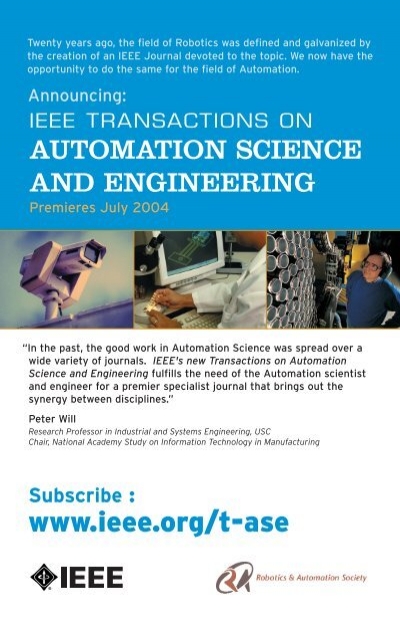未知控制系数的多参数严格反馈系统的规定性能控制
IF 6.4
2区 计算机科学
Q1 AUTOMATION & CONTROL SYSTEMS
IEEE Transactions on Automation Science and Engineering
Pub Date : 2025-06-23
DOI:10.1109/TASE.2025.3582230
引用次数: 0
摘要
研究了开关拓扑结构中控制系数未知的多参数严格反馈系统的规定性能控制问题。在用户给定的时间内,将同步误差调节到规定的性能约束中,实现agent输出的准确同步;此外,结果与初始值无关。与已有相同问题表述的研究相比,本文研究了更一般的情况,减少了通信负荷,得到了全局结果。数值仿真验证了所提控制算法的可行性。本文的动机是由于在控制系数未知的多个系统(如Norrbin系统和执行器增益失效的高超声速飞行器)的控制过程中表现不理想。这是由于Nussbaum函数的发散性,它被认为是处理未知控制系数的有效方法。现有的研究这类系统的方法大多集中在稳态性能上,而忽略了瞬态过程。本文将规定性能控制(PPC)、步进控制和协同控制结合起来,同时实现稳态和暂态控制目标,消除了传统PPC中对初始值的限制。因此,结果是全局的。该控制器保证同步误差被限制在规定的范围内,并最终收敛于0;也就是说,精确地实现了输出同步。而且,它只需要将agent的输出信息在整个通信网络中传输,减少了通信负担。通过两个仿真实例验证了算法的有效性。在未来的研究中,我们将考虑时间延迟的影响。本文章由计算机程序翻译,如有差异,请以英文原文为准。
Prescribed Performance Control for Multiple Parametric Strict Feedback Systems With Unknown Control Coefficients
This paper investigates the problem of prescribed performance control (PPC) for multiple parametric strict feedback (PSF) systems with unknown control coefficients in switching topologies. The synchronization error is regulated into the prescribed performance constraints within a user-given time, and agents’ outputs are synchronized accurately; furthermore, the results are independent of initial values. Compared with existing research with the same problem formulation, this paper investigates a more general case, reduces the communication load, and obtains a global result. The numerical simulations confirm the feasibility of the control algorithm presented. Note to Practitioners—This paper is motivated by the unsatisfactory performance during the control of multiple systems with unknown control coefficients, such as Norrbin systems and hypersonic vehicles with actuator gain failure. This is owing to the divergent properties of the Nussbaum function, which is considered an effective method for handling the unknown control coefficient. Most of the existing methods for studying such systems focus on the steady-state performance and ignore the transient progress. This paper unites prescribed performance control (PPC), backstepping control, and cooperative control to realize steady-state and transient control objectives simultaneously and removes the restrictions on initial values, which frequently arise in traditional PPC. Therefore, the result is global. The proposed controller guarantees that the synchronization errors are limited within a prescribed range and ultimately converge to 0; that is, the output synchronization is achieved precisely. Moreover, it only requires the output information of agents to be transmitted throughout the communication network and reduces the communication burden. We then show two simulation examples to demonstrate the validity of the algorithm. In future research, we will consider the impact of time delays.
求助全文
通过发布文献求助,成功后即可免费获取论文全文。
去求助
来源期刊

IEEE Transactions on Automation Science and Engineering
工程技术-自动化与控制系统
CiteScore
12.50
自引率
14.30%
发文量
404
审稿时长
3.0 months
期刊介绍:
The IEEE Transactions on Automation Science and Engineering (T-ASE) publishes fundamental papers on Automation, emphasizing scientific results that advance efficiency, quality, productivity, and reliability. T-ASE encourages interdisciplinary approaches from computer science, control systems, electrical engineering, mathematics, mechanical engineering, operations research, and other fields. T-ASE welcomes results relevant to industries such as agriculture, biotechnology, healthcare, home automation, maintenance, manufacturing, pharmaceuticals, retail, security, service, supply chains, and transportation. T-ASE addresses a research community willing to integrate knowledge across disciplines and industries. For this purpose, each paper includes a Note to Practitioners that summarizes how its results can be applied or how they might be extended to apply in practice.
 求助内容:
求助内容: 应助结果提醒方式:
应助结果提醒方式:


